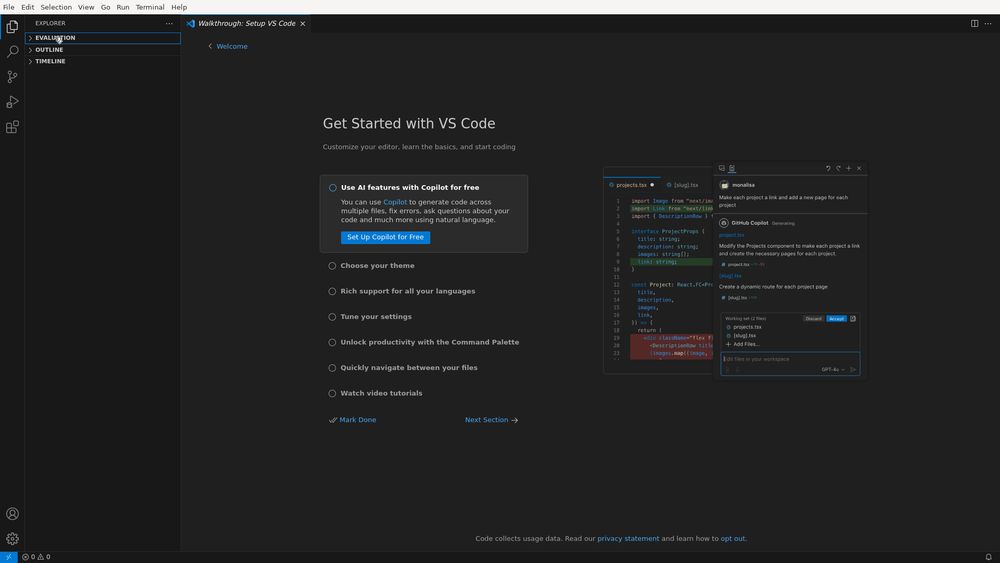Find more interesting details on our website & paper here:
🌐: programmingwithpixels.com
with
@wellecks.bsky.social


Find more interesting details on our website & paper here:
🌐: programmingwithpixels.com
with
@wellecks.bsky.social
Perhaps general SWE agents are just a special case of general-purpose computer-use agents?
🧵
Perhaps general SWE agents are just a special case of general-purpose computer-use agents?
🧵
Tiny icons or complex menus can confuse the agent, and multi-step operations (e.g. a debugger workflow) remain challenging.
🧵


Tiny icons or complex menus can confuse the agent, and multi-step operations (e.g. a debugger workflow) remain challenging.
🧵
Results? It competes with or even surpasses tool-based agents—without any domain-specific hand-engineering.

Results? It competes with or even surpasses tool-based agents—without any domain-specific hand-engineering.
PwP-Bench systematically tests a broad dev skillset within a single, realistic IDE setup.
🧵



PwP-Bench systematically tests a broad dev skillset within a single, realistic IDE setup.
🧵
Agents see the IDE (pixel screenshots) and act by typing & clicking—no special integrations are needed. They leverage all developer tools, just like an autonomous programmer at keyboard!
🧵

Agents see the IDE (pixel screenshots) and act by typing & clicking—no special integrations are needed. They leverage all developer tools, just like an autonomous programmer at keyboard!
🧵
✅ Seeing VS Code’s UI
✅ Typing, clicking & basic file operations
✅ Using built-in tools (debuggers, refactoring, etc)
A simple, general-purpose agent should leverage any SWE tool-without extra engineering.
🧵


✅ Seeing VS Code’s UI
✅ Typing, clicking & basic file operations
✅ Using built-in tools (debuggers, refactoring, etc)
A simple, general-purpose agent should leverage any SWE tool-without extra engineering.
🧵
That’s limiting – they can’t easily adapt to new tasks or fully leverage complex IDEs like human developers do. In other words, their “toolbox” is too narrow.
🧵

That’s limiting – they can’t easily adapt to new tasks or fully leverage complex IDEs like human developers do. In other words, their “toolbox” is too narrow.
🧵
@wellecks.bsky.social
and collaborator Bryan Parno!!
@wellecks.bsky.social
and collaborator Bryan Parno!!
🌐: alphaverus.github.io
📜: arxiv.org/abs/2412.06176
We believe this is an important step towards trustworthy code generation and teaching models to generate complex algorithmic code reliably!
🌐: alphaverus.github.io
📜: arxiv.org/abs/2412.06176
We believe this is an important step towards trustworthy code generation and teaching models to generate complex algorithmic code reliably!
Even better, AlphaVerus can improve GPT-4o or any other model without any fine-tuning!!
🧵


Even better, AlphaVerus can improve GPT-4o or any other model without any fine-tuning!!
🧵
Our critique module solves this problem! And yes, our critique module self-improves too!
🧵


Our critique module solves this problem! And yes, our critique module self-improves too!
🧵
Correct translations and refinements improve future models!
Challenge? Reward Hacking!
🧵

Correct translations and refinements improve future models!
Challenge? Reward Hacking!
🧵
Challenge: Data is scarce & proofs are complex!

Challenge: Data is scarce & proofs are complex!

